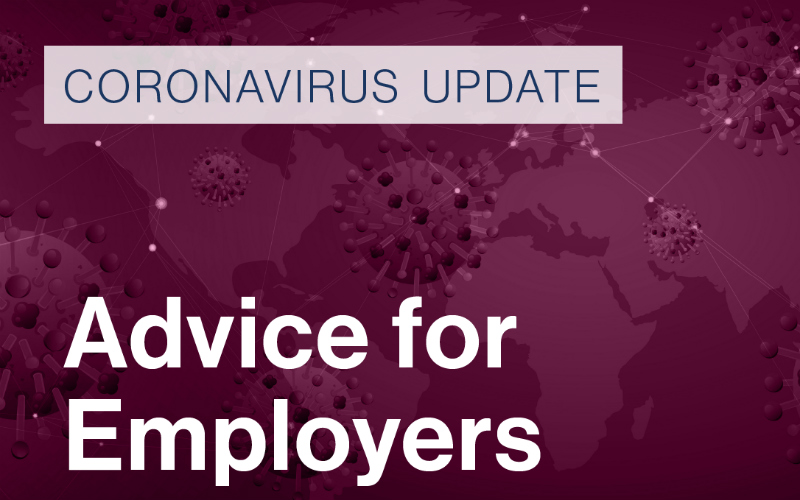
On 23 October 2020, the Government published a policy paper setting out further details on the Job Support Scheme [“JSS”]. The paper, available here, comes one day after the Chancellor announced an increase in the Government’s contributions to employee wages under the scheme. The policy paper confirms that two strands of the JSS are being introduced: JSS Open and JSS Closed.
Both strands are discussed in full detail below, although further guidance is still due to be published at the end of October.
What employers are eligible to claim under the JSS?
Employees must have enrolled in PAYE online and have a UK bank account to be eligible to submit a claim. Additional eligibility criteria apply under each branch of the scheme.
JSS Open
This route is for small, medium and certain large businesses who can remain open but who experience a downtown in service levels over the winter months. Large businesses (i.e. those with 250 employees or more) must complete a Financial Impact Test to demonstrate their eligibility, whereas all businesses with less than 250 employees are eligible without this test.
JSS Open provides temporary assistance to employee wage costs provided that staff are working at least 20% of their “usual hours”, a decrease from the 33% minimum initially announced. All worked hours must be paid by the employer at full contractual salary. The cost of remaining unworked hours will be shared between the employer, employee and Government as follows:
- The Government will contribute 61.67% of pay for hours not worked, capped at £1541.75 per month.
- The employer will only contribute 5% of pay for hours not worked, plus pension and national insurance contributions.
- The remaining 33% of hours not worked will go unpaid meaning the employee will still bear a portion of the cost by taking a reduction in salary.
The Government has substantially increased their contribution and decreased employer costs from the “third each” split envisaged when the JSS was first announced in September.
JSS Closed
This route has been announced to support businesses who are mandatorily required to close one or all of their premises due to Government restrictions and who therefore cannot offer the minimum working hours required under JSS Open.
JSS Closed is only available for the duration of the relevant Government restrictions, following which employers should consider their eligibility under JSS Open. Reimbursement for eligible employees can be claimed as follows:
- The Government will contribute two thirds normal wage costs for employees who cannot work due to mandatory closure, up to a maximum cap of £2,083.33 per month.
- The employer will continue to meet the cost of tax, pension and national insurance contributions and can choose to top up wage costs to 100% if they wish but this is not mandatory.
The above criteria will be supplemented by additional guidance due at the end of October.
What do the latest announcements say about employee eligibility?
Eligible employees are those who were on PAYE payroll between 6 April 2019 and 23 September 2020 (inclusive). The employer must have submitted an RTI Full Payment Submission during this period, similar to the Job Retention Scheme. Employees who were dismissed after 23 September and subsequently rehired are also eligible.
As previously announced, the JSS is not limited to those employees who were previously on furlough under the Job Retention Scheme. However, new conditions will be placed on employers claiming under the JSS which did not apply under the previous scheme:
- Employees who have been made redundant or are serving notice cannot be claimed for under the JSS;
- Large employers are expected not to issue capital distributions while use is being made of the JSS;
- Employers must continue to meet the cost of tax and national insurance contributions during all relevant claim periods; and
- Payment must be made to employees before a claim is made to the JSS and the full amount claimed for paid to the employee.
How are “usual hours“ calculated under the JSS?
The policy paper confirms how usual hours and wage costs are to be calculated in an approach which mirrors that of the Job Retention Scheme. Usual hours will be calculated depending on whether the employee works fixed or variable hours and will include periods spent on annual or statutory leave:
- For those who work fixed hours, normal hours will be based on the higher of:
- The hours the employee was contracted to work during the pay period ending on or before 23 September 2020; or
- The hours the employee was contracted to work during the pay period ending on or before 19 March 2020.
- For those who work variable hours, normal hours will be based on the higher of:
- The number of hours worked during the same month from the previous 2019-2020 tax year;
- The average hours worked during the 2019-2020 tax year; or
- The average hours worked from 1 February 2020 (or any later start date) to 23 September 2020.
The policy paper warns that these are only indicative calculations and full details will be provided, along with more detailed example calculations, by the end of October.
What reference salary should be used under the JSS?
Wage costs will be calculated based on a reference salary which again will differ depending on whether the employee receives a fixed salary or variable pay.
- For those who receive a fixed salary, wage cost calculations must be based on the higher of:
- The wages payable during the pay period ending on or before 23 September 2020; or
- The wages payable during the pay period ending on or before 19 March 2020.
- For those who receive a variable income, wage cost calculations must be based on the higher of:
- The wages earned during the same month from the previous 2019-2020 tax year;
- The average wages earned during the 2019-2020 tax year; or
- The average wages earned from 1 February 2020 (or any later start date) to 23 September 2020.
Similar to the Job Retention Scheme, the reference salary should include regular wages and other non-discretionary payments, such as contractual fees, overtime, commission and piece-rate payments. Discretionary payments are specifically excluded.
The policy note further confirms that the maximum reference salary is capped at £3,125 per calendar month meaning high earners could receive less than the guaranteed 73% earnings (for JSS Open) or 67% (for JSS Closed) available to those earning under this threshold.
Can employees do training while on the JSS?
Yes. The policy paper confirms that training can be undertaken “voluntarily” during non-working hours. However, training undertaken during working hours can also count towards the 20% required to be eligible under JSS Open.
Can employers top up wage costs claimed under the JSS?
Yes. The policy paper states that employers can choose to top-up wage costs at their own expense. This is a change of approach from the previous JSS guidance which indicated that top-up would not be expected under the scheme.
How will the JSS affect entitlement to annual leave?
The policy paper is silent in this regard and further guidance is anticipated at the end of October. Annual leave continues to accrue during furlough and other forms of statutory leave therefore it is expected that the JSS will follow a similar approach.
How will the JSS affect entitlement to parental leave?
This remains unclear. The Government has announced that further legislation regarding parental leave and JSS will be introduced. The end of October guidance is expected to address this.
Do employees need to agree to be placed on the JSS?
Yes. Employers must have an agreement with the employee in writing in which they agree to be placed on the JSS, whether Open or Closed. This should be kept for 5 years and may be requested by HMRC for auditing purposes.
When can employers make a claim?
The JSS comes into force on 1 November 2020 for an initial 6 month period until 30 April 2021. A review will be carried out in January. The claims portal is due to go live from 8 December 2020.
Further guidance from HMRC and the Treasury is expected this week. Please continue sign up to our mailing list for future employment law and business updates.
